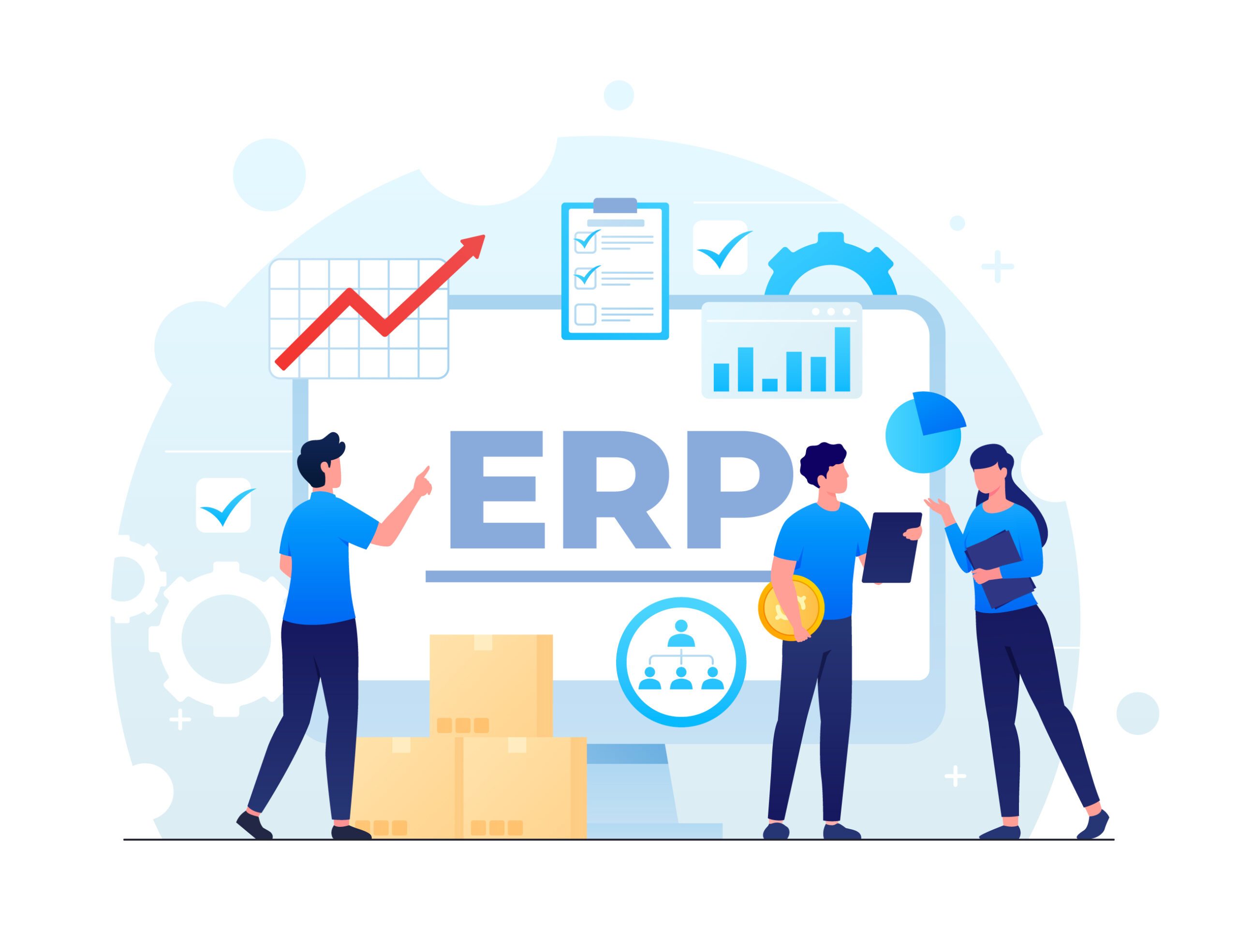ERP Integration
ERP Integration: Types, Approaches, Key Steps, and Services
ERP integration is essential for businesses looking to unify their core systems, streamline operations, and improve efficiency across departments. At Darksn, we specialize in seamless ERP integration services designed to ensure all of your business processes work together harmoniously.

The Scope of Our ERP Consulting Services
At Darksn, we offer comprehensive ERP consulting services designed to help businesses streamline their processes, improve efficiency, and achieve greater returns on their ERP investments. Our experienced consultants work closely with you to ensure that the ERP solution selected aligns with your business goals and supports long-term growth.
Our ERP consultants lay the foundation for successful automation and business process improvements by guiding you through every step of the ERP implementation journey.
Key Services:
Cost-Benefit and Business Case Analysis
We conduct thorough cost-benefit and business case analyses to help determine the financial value and long-term benefits of the ERP project for your business.Business Environment and Process Analysis
Our team analyzes your existing business environment to identify gaps in current processes, ensuring that the ERP solution addresses all critical pain points.Process Mapping
We map out "to-be" business processes, aligning them with your future business needs and goals to ensure efficiency and scalability.System and Requirements Analysis
Our consultants perform a detailed system analysis to conceptualize the ERP solution that fits your business model and requirements.ERP Software Conceptualization
Darksn’s ERP experts work with you to design and conceptualize a customized ERP solution, taking into account your specific operational needs.Change Readiness Evaluation
Before implementation, we evaluate your organization’s readiness for change, identifying potential challenges and ensuring that your team is prepared for the transition.Project Vision and Team Collaboration
We create a unified project vision, bringing together your project team and ensuring alignment with organizational goals throughout the ERP implementation.ERP Solution Options with TCO and ROI Analysis
Darksn outlines multiple ERP solution options, providing detailed Total Cost of Ownership (TCO) and projected Return on Investment (ROI) analyses, empowering you to make informed decisions.ERP Software Selection Process
We help you plan and execute the ERP software selection process, ensuring that the chosen solution aligns perfectly with your long-term business strategy.Contract Negotiation with ERP Vendors
Darksn’s consultants support you in negotiating contracts with ERP vendors to ensure the best value, services, and terms for your organization.
At Darksn, we provide comprehensive support throughout the ERP implementation process, ensuring the project is executed efficiently, within scope, and on budget. Our goal is to streamline the implementation, mitigate risks, and help your business transition seamlessly to a new ERP environment.
Key ERP Implementation Support Services
ERP Project Evaluation
We start by conducting a thorough evaluation of the ERP project, assessing project goals, budget, available resources, timeframes, and potential risks. This step ensures that all elements of the project are clearly defined from the outset.ERP Project Planning and Roadmap Creation
Our team develops a detailed project roadmap that includes scheduling, resource allocation, contingency scenarios, and a change management strategy. This plan ensures the project stays on track, accounting for any unforeseen challenges.Resource Allocation and Stakeholder Collaboration
Darksn allocates the necessary resources and sets up effective collaboration between project stakeholders. We ensure that every team member is aligned with the project’s goals and responsibilities, enhancing efficiency and communication.Verification and Validation Activities
We assist in verifying and validating the implemented ERP system to ensure that it meets the defined business requirements and functions as expected. This step guarantees the accuracy and reliability of the solution.Security Consulting
Our team provides security consulting services to safeguard your ERP system, ensuring that all sensitive data and operations are protected against potential threats during and after implementation.Project Control and Contingency Execution
Should the project deviate from its planned course, Darksn executes project control measures and contingency plans. Our proactive approach helps mitigate risks and resolve any issues, ensuring that the project stays within the set parameters.
We begin by conducting a comprehensive evaluation of your existing ERP systems to identify strengths, weaknesses, and areas for improvement. This assessment includes a thorough analysis of current workflows, user experiences, and system performance metrics. By understanding your organization's specific requirements and pain points, we can recommend tailored solutions that enhance operational efficiency. Our goal is to ensure that your ERP system aligns with your strategic objectives and supports your long-term growth.
Recognizing that each business has unique needs, we specialize in designing and implementing customized ERP solutions that cater to your specific operational demands. Our team collaborates closely with you to understand your business processes and identify the most effective ERP features to streamline operations. We focus on creating flexible, scalable solutions that not only address your current requirements but also adapt to future changes. This personalized approach ensures that you maximize your investment in technology while driving continuous improvement across your organization.
Effective utilization of your ERP system hinges on user competence and engagement. We provide extensive training programs tailored to different user roles, ensuring that your team is fully equipped to leverage the system’s capabilities. Our training covers essential functionalities, best practices, and troubleshooting techniques to empower your employees. Additionally, we offer ongoing support services to address any challenges that arise post-implementation. Our dedicated support team is available to assist users, ensuring seamless operation and high satisfaction levels.
The landscape of technology and business needs is ever-evolving, and so should your ERP system. We are committed to helping you maintain a competitive edge through regular system updates and enhancements. Our continuous improvement process involves monitoring your system's performance, gathering user feedback, and analyzing emerging industry trends to propose relevant upgrades. By ensuring your ERP solution evolves with your business, we help you capitalize on new opportunities and maintain operational excellence.
Benefits of ERP Integration
ERP integration centralizes data management, streamlines workflows, and enhances overall efficiency by connecting your ERP system with other applications.
Single Source of Truth
An integrated ERP system consolidates all business data into a centralized database, providing a unified view of information across the entire organization. This centralization significantly improves transparency, ensures data consistency, and supports more comprehensive and accurate analytics, aiding in informed decision-making.
Automated Workflows
By integrating ERP with other applications, organizations can automate routine and time-consuming data management tasks effectively. This automation significantly reduces human errors, enhances the accuracy and reliability of business operations, and boosts overall employee productivity by allowing staff to focus on more strategic and high-value activities that drive growth.
Data Silos Breakdown
Description: Integration of ERP systems with legacy or homegrown applications helps to dismantle data silos. This seamless connection ensures that critical business information, previously isolated in separate systems, is accessible and usable across the organization, leading to better data management and coordination.
Improved Team Collaboration
ERP integration promotes data consistency and accessibility between various systems, which facilitates smoother communication and collaboration among different departments within the organization. This cohesion helps teams work together more effectively, aligning their efforts towards common goals and significantly improving overall organizational efficiency.
Enhanced Workflows
Description: Integrating ERP systems enhances workflow management by enabling real-time tracking of departmental performance and adherence to corporate objectives. It allows for better task assignment and monitoring, reducing the risk of process disruptions and ensuring that operational activities are streamlined and aligned with strategic goals.
Better Customer Experience
Description: The integration of customer-facing tools with back-end ERP systems ensures a continuous flow of data, which accelerates lead conversion and improves customer interactions. This integration provides a holistic view of customer interactions and preferences, enabling departments to respond more effectively to customer needs and enhance overall satisfaction.
ERP Integration Lifecycle
Seamlessly Integrate Your Systems for Maximum Efficiency!
1. ERP Integration in Stuttgart, Ludwigsburg, Frankfurt, Mannheim, Karlsruhe, Heidelberg, Freiburg, Nuremberg, and Munich
In today’s competitive business environment, ERP systems have become central to operational efficiency. Companies across Stuttgart, Ludwigsburg, Frankfurt, Mannheim, Karlsruhe, Heidelberg, Freiburg, Nuremberg, and Munich are increasingly asking: “was ist ein ERP system?” and how enterprise resource planning systeme can streamline their processes.
Seamless ERP integration connects modules like procurement, production, inventory, sales, and accounting into one unified platform. ERP IT solutions, including Navision Software and SAP Business One, ensure data consistency, reduce manual errors, and enable real-time reporting for businesses in Southern Germany.
2. Cloud & iPaaS Solutions for Efficient ERP Integration
Modern enterprise resource planning systeme often require cloud-based integration for CRM, e-commerce, accounting, and third-party applications. Platforms like:
- Dell Boomi
- MuleSoft Anypoint Platform
- Celigo
- Workato
- Informatica Cloud
help companies in Mannheim, Karlsruhe, Stuttgart, and Ludwigsburg achieve scalable, secure, and automated ERP IT processes. SAP Business One or Navision Software integration becomes smoother, reducing downtime and boosting productivity.
3. API Management & Middleware for Complex ERP Landscapes
Middleware solutions such as:
- Apache Camel
- SAP PI/PO
- Oracle Integration Cloud
- Microsoft Power Automate
enable controlled, seamless connectivity between ERP systems and existing IT landscapes. Businesses in Ludwigsburg, Nuremberg, Heidelberg, and Stuttgart benefit from improved data flow, compliance, and efficiency when leveraging ERP IT best practices.
4. ETL & Data Pipelines for Structured ERP Data
Enterprise resource planning systeme often involve large volumes of data. ETL tools like:
- Talend
- Fivetran
- Hevo Data
- Apache NiFi
help companies in Munich, Frankfurt, and Karlsruhe process, transform, and validate data between systems. Integration of Navision Software or SAP Business One ensures accurate reporting, optimized workflows, and real-time business intelligence.
5. Native ERP Interfaces & Tools
Many ERP systems offer built-in integration tools, such as:
- SAP Integration Suite
- Microsoft Dynamics Data Integrator
- Odoo Webhooks
- NetSuite SuiteTalk
- Oracle E-Business Suite Integrator
Darksn guides businesses in Stuttgart, Freiburg, Ludwigsburg, and Mannheim to select the best integration strategy for their ERP IT landscape.
6. Security & Access Control in ERP Integration
ERP data security is critical. Authentication and identity management tools like:
- OAuth 2.0
- OpenID Connect
- Azure Active Directory
- Okta
- Ping Identity
ensure GDPR-compliant data transfer and processing across Stuttgart, Ludwigsburg, Frankfurt, Mannheim, Karlsruhe, Heidelberg, Freiburg, Nuremberg, and Munich. This protects sensitive data in enterprise resource planning systeme, ERP IT, and systems like Navision Software and SAP Business One.
7. Cloud Infrastructure for Scalable ERP Integration
Cloud services such as:
- Microsoft Azure Logic Apps & Service Bus
- AWS Lambda & AppFlow
- Google Cloud Functions & Pub/Sub
support high-availability and scalable ERP integration for companies in Stuttgart, Ludwigsburg, Frankfurt, Mannheim, Karlsruhe, Heidelberg, Freiburg, Nuremberg, and Munich. Cloud-based enterprise resource planning systeme combined with ERP IT consulting ensures future-proofed operations.
8. Smart Analytics and Reporting
After integration, tools like:
- Power BI
- Tableau
- Qlik Sense
- Looker
enable data-driven decisions based on unified ERP data. Companies in Ludwigsburg, Heidelberg, and Stuttgart can leverage real-time insights from ERP systems, Navision Software, or SAP Business One to improve efficiency and scale operations.
9. Why Choose Darksn for ERP Integration in Southern Germany
Whether your business uses SAP, Odoo, Microsoft Dynamics, or Oracle, Darksn develops custom ERP integration strategies for companies in Stuttgart, Ludwigsburg, Frankfurt, Mannheim, Karlsruhe, Heidelberg, Freiburg, Nuremberg, and Munich.
We combine ERP IT expertise, enterprise resource planning systeme knowledge, security, API design, and monitoring — making your systems work seamlessly together. Integration of Navision Software and SAP Business One ensures optimized workflows, automated processes, and a future-ready IT infrastructure.
